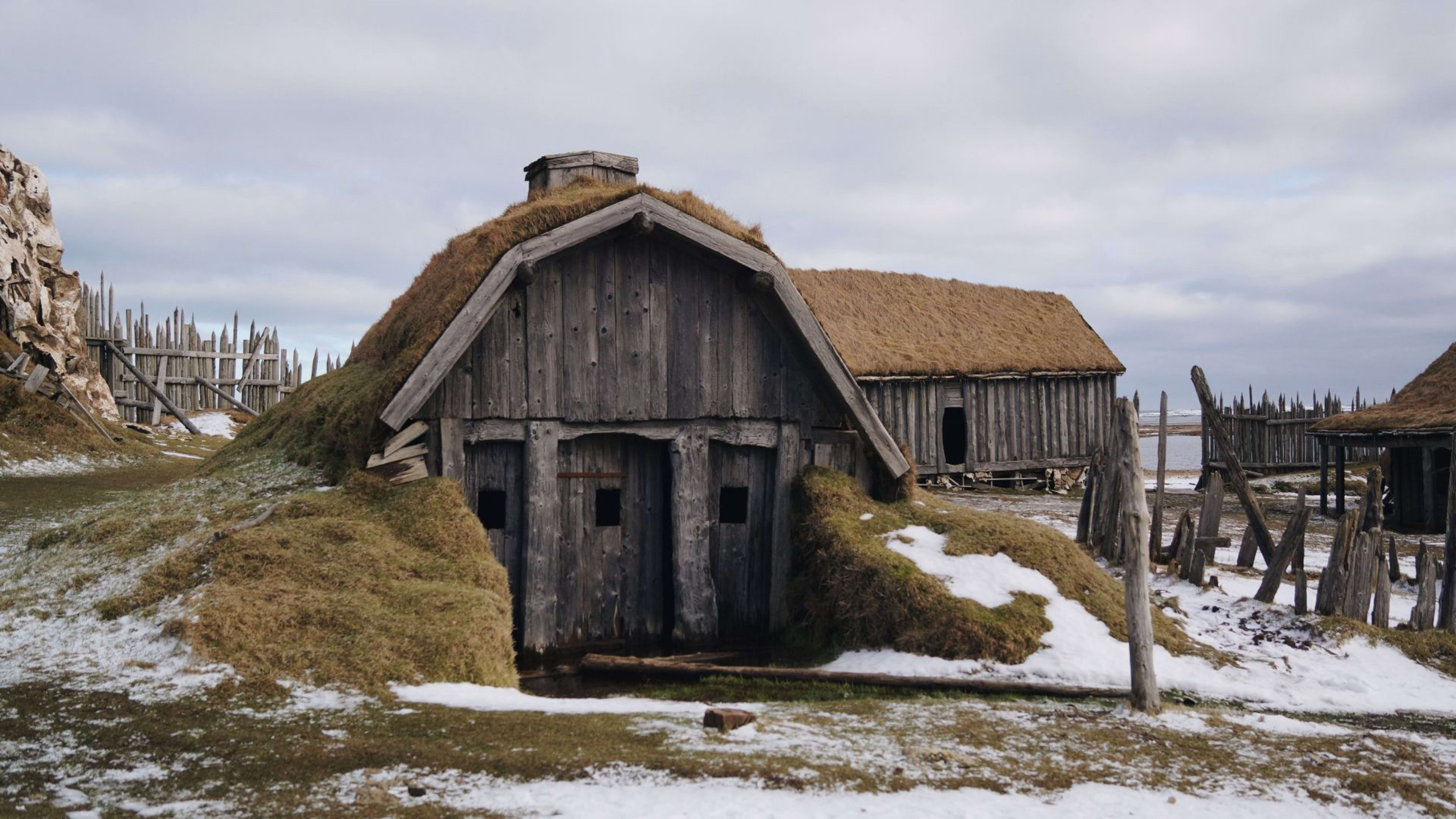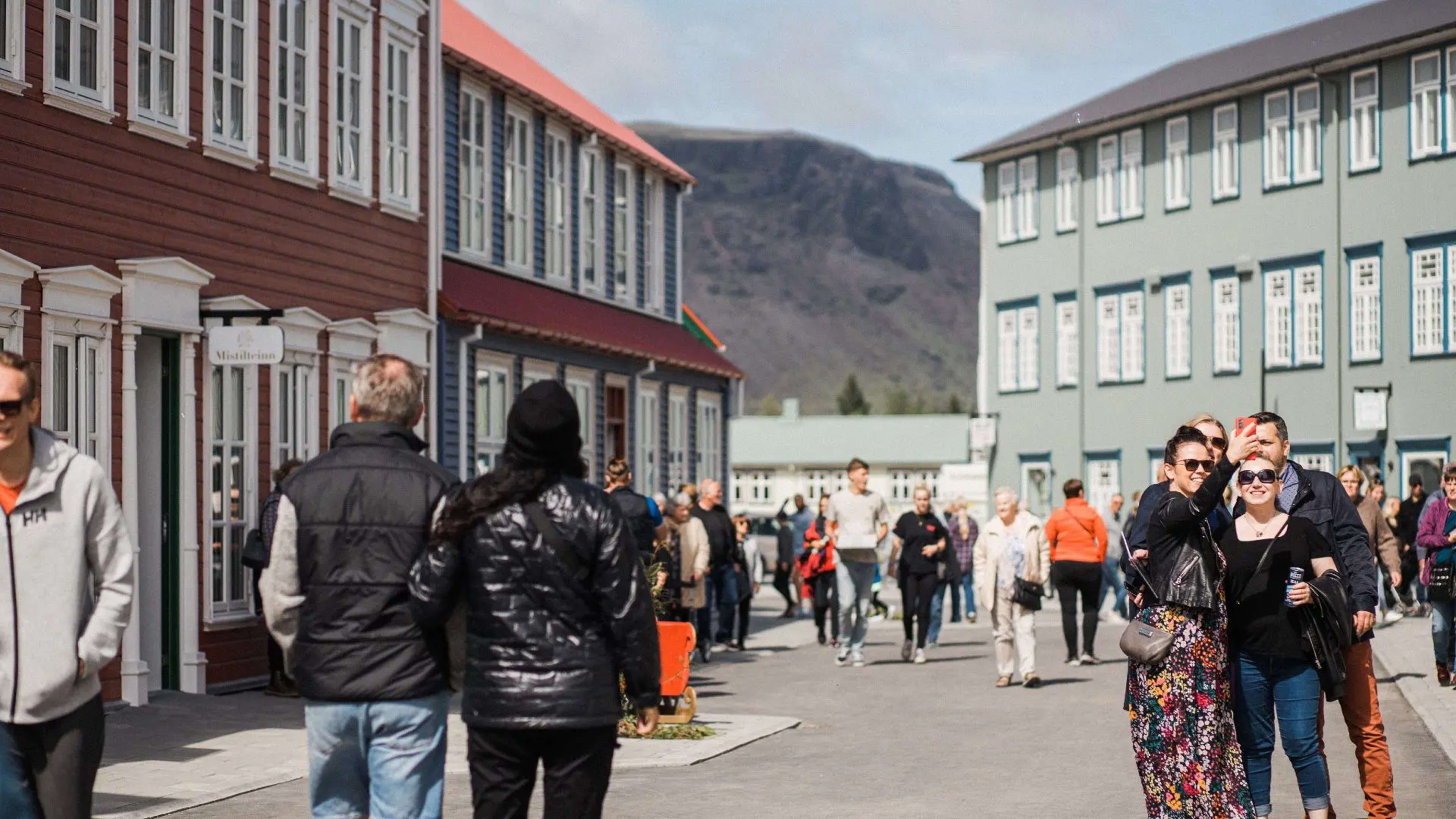Despite being one of the smallest nation-states in Europe, Iceland has a thriving cultural scene focused on music, literature, and the visual arts. Amongst the Icelanders’ greatest cultural treasures are the Icelandic language and Íslendingasögur, or Sagas of Icelanders.
- Learn all about Iceland’s history and culture at one of Reykjavík’s museums.
History of Iceland
Where did the Icelanders come from?
The Icelandic language and culture of today reflects the mainly Norse origin of the early population, but there is also evidence of Celtic blood and heritage. Although the first settlers of Iceland are thought to have been Irish monks or hermits, they left the island when the pagan Vikings arrived in the late 9th century.
Most of the evidence indicates that the first permanent settlers came from Norway and parts of the British Isles where Vikings lived amongst the Celtic population. They would also have been accompanied by Celtic slaves.

The early settlers established farmsteads and small villages around the country, using building techniques from their native Norway. This quickly led to the deforestation of Iceland and wood became scarce.
The first Icelanders soon established the Alþingi, a sort of parliament that met once a year at Þingvellir (Thingvellir). Farmers and craftsmen from across the country would gather here to settle disputes, trade goods, and socialize.
Who discovered Iceland?
According to Landnámabók, the Book of Settlements, Ingólfur Arnarson was the first permanent settler of Iceland, establishing himself there in 874. Legend has it that he chose the site that would become Reykjavík by casting wooden pillars into the ocean and settling where the pillars washed ashore.
Language & literature
What language do they speak in Iceland?
The Icelandic language is the mother tongue of almost all Icelanders. It belongs to the North Germanic family and is related to Danish, Norwegian, and Swedish, and more distantly Dutch, German, and English.
Icelandic retains many similarities to Old Norse, the language that the settlers brought with them from Norway in the 9th and 10th centuries. The Icelandic literature and sagas of the 13th century can still be read by modern Icelandic speakers with relatively little difficulty.
English is widely understood and spoken almost universally. Many people have a working knowledge of Danish, German, Spanish, or French too.
What are the Sagas of Icelanders?

Known in Icelandic as Íslendingasögur, the Sagas of Icelanders are probably the nation’s most significant contribution to world culture.
The sagas were originally written on sheepskin in the 12th and 13th centuries. They are the only record of the pagan Norse religion and tell us a lot about life in medieval Iceland and Scandinavia.
Music
What is the Icelandic music scene like?
For a tiny island of less than 400,000 people, the music scene in Iceland packs a punch. Many Icelanders moonlight as musicians, meaning that pretty much everyone knows someone who’s in a band.

The Icelandic music scene is also surprisingly diverse, with genres such as pop, punk, post-rock, electronic, rap, and even reggae being popular.
You’ve probably heard of some of Iceland’s most famous musical artists, such as Björk, Sigur Rós, Of Monsters and Men, GusGus, and Vök.
Iceland has also had success at Eurovision in recent years, with acts such as Hatari and Daði og Gagnamagnið making it big across Europe.
What are the main music festivals in Iceland?

The biggest annual music festival is Iceland Airwaves, held in October/November every year. This festival takes place across multiple venues in Reykjavík, with the Harpa concert hall being the main hub. Iceland’s most famous acts across all genres play alongside international artists. A great intro to the Icelandic music scene!
If you’re looking for outdoor vibes, Secret Solstice delivers. Here you can dance under the midnight sun in the Laugardalur park to Icelandic and international artists.
Another big festival is Þjóðhátíð in the Westman Islands, held in August. Attending this outdoor festival is a rite of passage for many young Icelanders. Then there’s Aldrei fór ég suður, a free festival in Ísafjörður in the Westfjords. And for metalheads, there’s the Eistnaflug festival in Neskaupstaður, East Iceland.
- Soak up Icelandic culture on a multi-day tour out of Reykjavík.
